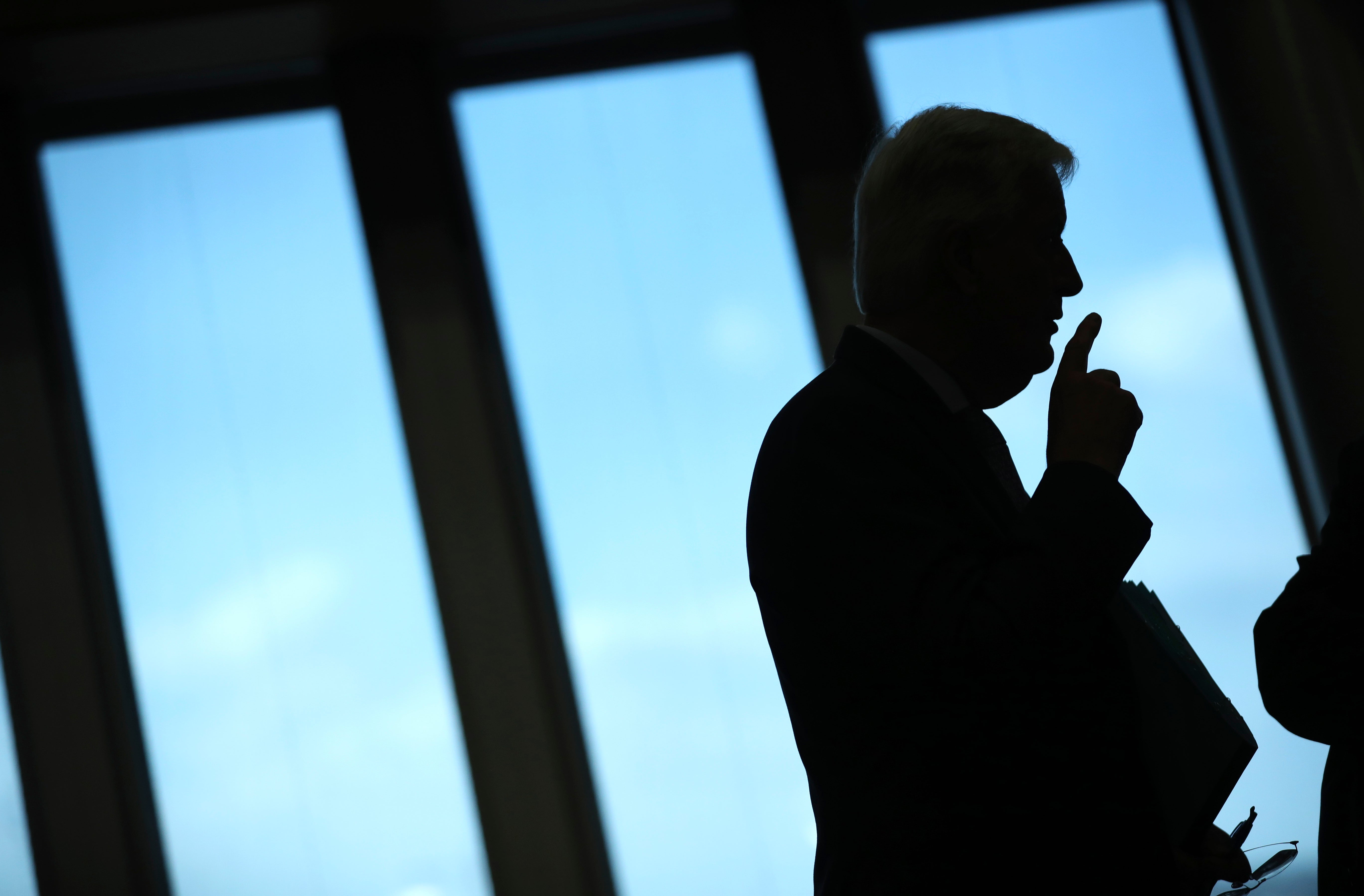EU's Brexit chief eyes a role in French presidential vote
He's known throughout most of Europe as Mr. Brexit, but not so well known at home in France

Your support helps us to tell the story
From reproductive rights to climate change to Big Tech, The Independent is on the ground when the story is developing. Whether it's investigating the financials of Elon Musk's pro-Trump PAC or producing our latest documentary, 'The A Word', which shines a light on the American women fighting for reproductive rights, we know how important it is to parse out the facts from the messaging.
At such a critical moment in US history, we need reporters on the ground. Your donation allows us to keep sending journalists to speak to both sides of the story.
The Independent is trusted by Americans across the entire political spectrum. And unlike many other quality news outlets, we choose not to lock Americans out of our reporting and analysis with paywalls. We believe quality journalism should be available to everyone, paid for by those who can afford it.
Your support makes all the difference.He’s well known in the U.K., and his photo was regularly splashed across the front pages of European newspapers. But as presidential elections approach in France, Michel Barnier – the EU’s Mr. Brexit and a potential contender – is having a tougher time making himself recognized in his own country.
In a 50-year political career, Barnier has served as French foreign, European affairs, environment and agriculture minister — and twice as a European commissioner — but he’s never had a tilt at any leadership post, like that of president or prime minister. Now, aged 70, he's implying that he might enter the lists next year against President Emmanuel Macron a centrist, and far-right National Rally leader Marine Le Pen.
Over the past week, Barnier has appeared in French media interviews talking up his four years as chief EU negotiator on Britain’s departure from the world’s biggest trading bloc; all encapsulated in his new book, The Great Illusion, coming out on Thursday.
The book is touted as Barnier’s “secret Brexit diary,” but as he lays out the tortuous and technical negotiations with a British team that, in the author’s telling, routinely appears out of its depth, he slowly establishes his political credentials from humble beginnings in France’s Haute-Savoie region.
“I’m a Savoyard and proud of it. A highlander, and I’m used to long hikes in the mountains, to be careful where I put my feet. A hike can be dangerous, and we have to keep an eye on the summit, even if it’s sometimes to see the horizon,” Barnier told France Inter radio this week.
That tenacity served him well, and it is likely to be tested again as he seeks to reunite a conservative “The Republicans” movement that is barely a shadow of the political groupings which once gravitated around former president Nicolas Sarkozy.
Whether the party can mount a serious challenge to Macron, or even Le Pen, remains an open question.
Ahead of next April’s presidential election, opinion polls place these two in a position to reach the run-off in what would be a rematch of France’s last vote, in 2017. The polls also give Macron victory over Le Pen in a second round.
Asked whether he is running, Barnier – known for his frank and sober assessment of Brexit issues – was somewhat cryptic: “I’m preparing to be present, and an actor in this presidential debate because I think I can bring something to it.”
For now, Barnier said, the French are focused on the coronavirus crisis, and rightly so. “The French people should be respected, and we have to put respect back into the political debate,” he told France Inter. Any official announcement of his candidacy could come in the fall.
In his book though, Barnier — known for his unfailing politeness – shows how he has the ear of Europe’s leaders. He is careful to give mostly positive and measured assessments of those he deals with, from Germany’s Angela Merkel to Hungary’s Viktor Orban.
Even U.K. Prime Minister Boris Johnson a driving force behind the Brexit that Barnier believes was a terrible mistake, is described as “pragmatic,” “more efficient than some might think,” and “not to be underestimated.”
But Johnson's “sometimes awkward” attempts to attach himself to former U.S. President Donald Trump may have been his biggest blunder. “I don’t think that Joe Biden will have a privileged relationship with Boris Johnson,” Barnier writes.
Barnier remains wary of the lure of populism – as opposed to popular sentiment, which he says should be heeded and considered – branding Le Pen, Italian right-wing League leader Matteo Salvini and Brexit figurehead Nigel Farage as people who “want to destroy us from the inside.”
Ahead of what could be a turbulent election campaign, the man known for his mantra “keep calm and negotiate” faces a simple task: to raise his profile and political credibility in France.
To go by the polls, Barnier's chances appear slim. Still, previous elections have had their share of surprises. Macron himself emerged as a credible contender only months before the last vote as the then conservative candidate Francois Fillon, once a favorite, sank amid fraud accusations.
Barnier's book is due out in English in October.
___
Cook reported from Brussels.